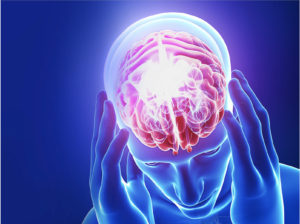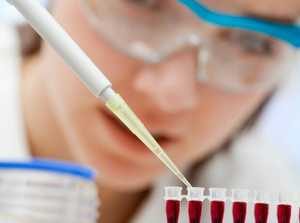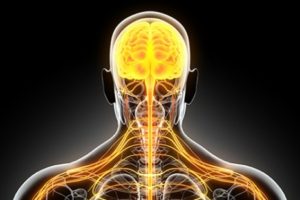Meningioma Samples
Bay Biosciences provides high quality, clinical grade, fresh frozen tumor tissue bio-specimens, cryogenically preserved sera (serum), plasma and peripheral blood mononuclear cells (PBMC) biofluid samples from patients diagnosed with meningioma.
The sera (serum), plasma and PBMC biofluid specimens are processed from patient’s peripheral whole-blood using customized collection and processing protocols. The meningioma tumor fresh frozen tissue samples and biofluids are collected from unique patients diagnosed with meningioma tumor and are provided to a valued pharmaceutical customer for research, diagnostics, discovery and drug development.
Detailed clinical data, meningioma tumor patients history, symptoms, complete blood count (CBC), serology, chemotherapy information, tumor biopsy tissue blocks, elevated biomarker levels, genetic and metabolic information, histopathological findings, annotations associated with meningioma tumor specimens is provided to a valued customer for research, development and drug discovery.
The meningioma tumor sera (serum), plasma and peripheral blood mononuclear cells (PBMC) biofluid are processed from patients peripheral whole-blood using customized collection and processing protocols.
The Central Nervous System
The brain and spinal column makes up the central nervous system (CNS), which controls many of the vital functions of the body. When planning treatment for a tumor in CNS, doctors consider how a person’s thought processes, movements, and senses may be affected by the tumor and potential treatment options.
Meningioma Overview
A meningioma is a tumor that arises from the meninges, which are the membranes that surround the brain and spinal cord. Although meningioma’s are not technically a brain tumors, it is included in this category because it may compress or squeeze the adjacent brain, nerves and vessels. Because most meningiomas grow slowly, often without any significant signs and symptoms, they do not always require immediate treatment and may be monitored over time.
Meningioma is the most common type of tumor that forms in the head. A tumor begins when healthy cells change and grow out of control, often forming a mass. A tumor can be cancerous or benign. In general, a cancerous tumor is malignant, meaning it can spread or grow into other parts of the body. A benign tumor can grow but will usually not spread. Meningiomas occur more commonly in women and are often discovered at older ages, but may occur at any age.
Meningioma is usually a slow-growing tumor that forms on the surface of the brain. It may cause significant symptoms if it grows and presses on the brain or spinal cord. Meningioma starts in the meningeal tissues, which are thin membranes that surround the brain and spinal cord. There are three meningeal layers: the dura mater, arachnoid, and pia mater. The meninges protect the brain and spinal cord and help the cerebrospinal fluid (CSF) circulate between the arachnoid and pia layers. About 80% of meningiomas are benign. The remaining 20% are either called atypical because they have an increased risk of returning after treatment or, rarely, malignant. Malignant meningioma may be called anaplastic.
Sub-Types of Meningioma
Meningioma is often classified based on where it starts in the central nervous system (CNS).
- Falx and parasagittal meningioma: The falx is a membrane that sits in a groove between the left and right sides of the brain. It contains a large blood vessel and protects the brain. Parasagittal meningioma occurs at the top of the falx just on the inside of the skull. These are the most common types of meningioma and make up about 25% of all meningiomas.
- Convexity meningioma: This type of meningioma occurs on the outer surface of the brain. It makes up about 20% of meningiomas.
- Sphenoid meningioma: The sphenoidal ridge is located behind the eyes. This type makes up 20% of meningiomas.
- Olfactory groove meningioma: This type of meningioma occurs near the nerves that connect the brain to the nose, it makes up 10% of meningiomas.
- Posterior fossa meningioma: Posterior fossa meningioma develops at the back of the brain, it makes up 10% of all meningiomas.
- Suprasellar meningioma: Suprasellar meningioma occurs next to the sella turcica. This is an area at the base of the skull in the center of the skull where the pituitary gland sits. This type makes up 10% of all meningiomas.
- Spinal meningioma: Spinal meningioma usually occurs in the spine at chest level and may push against the spinal cord. It can cause pain radiating around the chest wall, bladder trouble, or weakness or numbness in the legs. This type makes up less than 10% of all meningiomas.
- Intraorbital meningioma: This type of meningioma develops in or around the eye sockets. It accounts for less than 10% of meningiomas.
- Intraventricular meningioma: Intraventricular meningioma occurs in the chambers that carry fluid throughout the brain. This type makes up about 2% of all meningiomas.

Signs and Symptoms of Meningioma
Signs and symptoms of a meningioma typically begin gradually and may be very subtle at first. Depending on where in the brain or, rarely, spine the tumor is located.
Following are the common signs and symptoms of meningioma:
- Changes in vision, such as seeing double or blurriness
- Headaches especially those that are worse in the morning
- Fatigue
- Hearing loss or ringing in the ears
- Memory loss
- Loss of smell
- Seizures
- Weakness in your arms or legs
- Language difficulty
Causes of Meningioma
Exact causes of developing a meningioma are unknown. Researchers know that something alters some cells in the meninges to make them multiply out of control, leading to a meningioma tumor. Possibly this occurs because of genes you inherit, hormones which may be related to the more frequent occurrence in women patients, the rare instance of prior exposure to radiation or other factors remains largely unknown.
Risk factors of Meningioma
Following are the risk factors for a meningioma include:
- Radiation treatment: Radiation therapy that involves radiation to the head may increase the risk of a meningioma.
- Female hormones: Meningiomas are more common in women, leading scientists to believe that female hormones may play a role. Some studies have also suggested a link between breast cancer
and meningioma risk related to the role of hormones. - An inherited nervous system disorder: The rare disorder neurofibromatosis 2 increases the risk of meningioma and other brain tumors.
- Obesity: A high body mass index (BMI) is an established risk factor for many types of cancers, and a higher prevalence of meningiomas among obese people has been observed in several large studies. But the relationship between obesity and meningiomas is not clear.

Bay Biosciences is a global leader in providing researchers with high quality, clinical grade, fully characterized human tissue samples, bio-specimens and human bio-fluid collections from cancer (tumor) tissue, cancer serum, cancer plasma cancer PBMC and human tissue samples from most other therapeutic areas and diseases.
Bay Biosciences maintains and manages it’s own bio-repository, human tissue bank (biobank) consisting of thousands of diseased samples (specimens) and from normal healthy donors available in all formats and types. Our biobank procures and stores fully consented, deidentified and institutional review boards (IRB) approved human tissue samples and matched controls.
All our human human tissue collections, human specimens and human bio-fluids are provided with detailed samples associated patient’s clinical data. This critical patient’s clinical data includes information relating to their past and current disease, treatment history, lifestyle choices, biomarkers and genetic information. Patient’s data is extremely valuable for researchers and is used to help identify new effective treatments (drug discovery & development) in oncology, other therapeutic areas and diseases. This clinical information is critical to demonstrate their impact, monitor the safety of medicines, testing & diagnostics, and generate new knowledge about the causes of disease and illness.
Bay Biosciences banks wide variety of human tissue samples and biological samples including cryogenically preserved -80°C, fresh, fresh frozen tissue samples, tumor tissue samples, FFPE’s, tissue slides, with matching human bio-fluids, whole blood and blood derived products such as serum, plasma and PBMC’s.
Bay Biosciences is a global leader in collecting and providing human tissue samples according to the researchers specified requirements and customized, tailor made collection protocols. Please contact us anytime to discuss your special research projects and customized human tissue sample requirements.
Bay Biosciences provides human tissue samples (human specimens) from diseased and normal healthy donors; including peripheral whole-blood, amniotic fluid, bronchoalveolar lavage fluid (BAL), sputum, pleural effusion, cerebrospinal fluid (CSF), serum (sera), plasma, peripheral blood mononuclear cells (PBMC’s), saliva, Buffy coat, urine, stool samples, aqueous humor, vitreous humor, kidney stones, renal calculi, nephrolithiasis, urolithiasis and other bodily fluids from most diseases including cancer. We can also procure most human bio-specimens and can do special collections and requests of human samples that are difficult to find. All our human tissue samples are procured through IRB approved clinical protocols and procedures.
In addition to the standard processing protocols Bay Biosciences can also provide human plasma, serum, PBMC bio-fluid samples using custom processing protocols, you can buy donor specific sample collections in higher volumes and specified sample aliquoting from us. Bay Biosciences also provides human samples from normal healthy donors, volunteers, for controls and clinical research, contact us Now.
日本のお客様は、ベイバイオサイエンスジャパンBay Biosciences Japanまたはhttp://baybiosciences-jp.com/contact/までご連絡ください。



